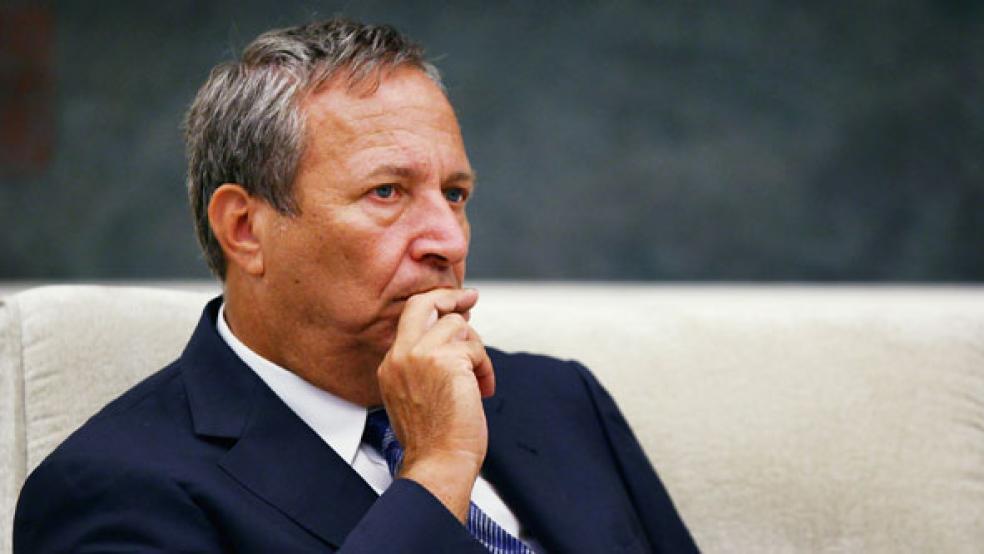Those on the left who still bitterly blame Lawrence H. Summers for undercutting the size and scope of the Obama administration’s economic stimulus package might be amused by what Summers had to say this week in a wide ranging speech at M.I.T.
Back in early 2009, as the new administration was trying to push the stimulus package through Congress amid the worst economic crisis of modern times, Rep. Peter DeFazio, D-Ore., and other liberals blasted Summers for pressing for tax cuts over infrastructure spending. An irate DeFazio declared that Summers, then the director of the National Economic Council, actually “hates infrastructure.”
In hindsight, many economists and analysts say that the administration missed an important opportunity by not advocating a larger and more robust stimulus package that included considerably more funds for highways, bridges and other infrastructure projects to help put more American back to work.
As he departed the administration late last year, Summers signaled he was having a change of heart on the efficacy of infrastructure spending to help combat unemployment. During his his speech at the Massachusetts Institute of Technology on Wednesday, Summers said the U.S. needs additional government spending to create significant economic growth, and in so doing would face little risk of serious inflation, according to a report by the MIT News.
While Congress and the “Super Committee” are fixated on finding ways to reduce spending and bring down the long term deficit, Summers declared that “government should be embarked on a multiyear, substantial investment program in infrastructure.”
“No thoughtful person can look at the U.S. economy today and believe that the principal constraint on expansion of output and employment is anything other than the lack of demand experienced by firms,” said Summers, the former Treasury Secretary during the Clinton administration. “If the private sector is either unable or unwilling to borrow and spend on a sufficient scale, then there is a substantial role for government in doing that . . .That’s the right macroeconomics. It’s also common sense.”
Summers said that monetary policy would normally by itself spur growth, by making it easier for businesses to borrow and spend. But with Federal Reserve interest rates near zero, that option is now impossible. “When the zero interest rate binds, everything works differently,” Summers said. And while economic growth often produces inflation, Summers was skeptical that such an effect would occur soon.
In a free-wheeling Q&A session, Summers offered these other observations:
- On the economic crisis in Europe: The crisis is a fiscal-policy version of the United States’ war in Vietnam, in which stopgap measures by Europe’s leaders have produced a quagmire. “They have, at every stage, acted only when it was ‘apocalypse imminent.”
- On the performance of economists generally in light of the largely unanticipated economic crisis, Summers said economists aren’t omniscient, but perform an important service: “I’ve had meetings with vice premiers, number-two people in China, who have asked me questions about NBER [National Bureau of Economic Research] working papers in macroeconomics. “That says the work has an enormously positive and important impact.”
- On the differing styles of President Obama and former President Bill Clinton: “They’re very different people. If you have a 2:00 meeting scheduled with Barack Obama, the meeting might begin at 10 of two … and it surely will have begun by 10 after two. . . .If you’ve sent him a 20-page memo before the meeting, he will have read the memo, and he will not appreciate your attempting to summarize the memo for him.
“With Clinton, the chance that your meeting will have begun at 2:02 is zero. The chance that your meeting will have begun by 2:15 is about one in three. The chance that he will have read carefully your 20-page memo is about even … [but] in the five minutes you spend summarizing it for him, he will have absorbed virtually all the content. He will then have something to say. It might be, ‘I was in the White House library the other night and I happened to be reading the Journal of Finance, and this is what it says about dividend policy.





